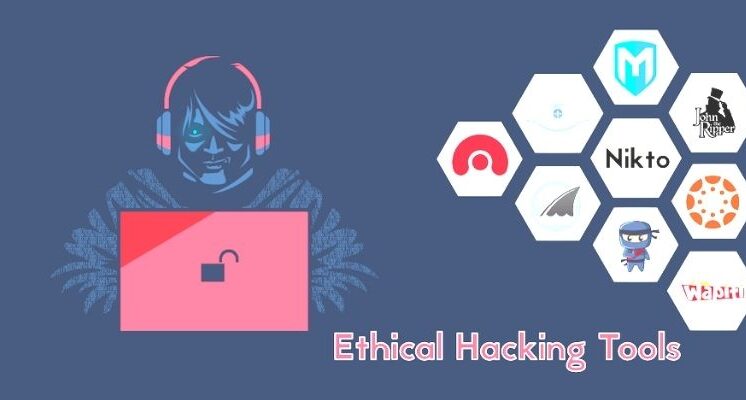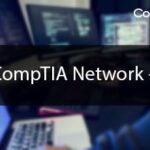The Ethical Hacker’s Toolbox for Navigating Digital Threats

The Ethical Hacker’s Toolbox for Navigating Digital Threats
In the constantly changing world of cyberattacks, ethical hackers are essential to defending our globalized society. To ensure the robustness of our digital infrastructure, this article examines “The Ethical Hacker’s Toolbox,” exploring key tactics and resources that ethical hackers use to identify and eliminate digital risks.
Come along for the ride as we explore the tools of ethical hacking and the relationship between proactive defense and cutting-edge cybersecurity. Let’s get straight into the topic!
Understanding Ethical Hacking: An Overview
Authorized attempts to evaluate and enhance the security of computer networks, applications, or systems are referred to as ethical hacking. The same methods that malevolent hackers employ are also used by ethical hackers, but their objective is to find weaknesses and bolster defenses.
To improve overall cybersecurity, important components include getting permission, staying within specified parameters, and delivering thorough reports. To proactively safeguard systems against changing cyber threats, ethical hacking is essential.
Top Ethical Hacking Tools for Ethical Hackers
| S.No. | Tools | Define |
| 1. | Nmap | A potent network scanning program that aids in the discovery of hosts, open ports, and network services by ethical hackers. It offers useful data for evaluating vulnerabilities. |
| 2. | Metasploit | A comprehensive methodology for penetration testing that enables computer system vulnerabilities to be found, exploited, and verified by ethical hackers. |
| 3. | Wireshark | A network protocol analyzer aids in the analysis of network traffic and the detection of possible security vulnerabilities by allowing ethical hackers to intercept and examine packets. |
| 4. | Burp Suite | An online application security testing tool that uses HTTP traffic interception and manipulation to help ethical hackers find, exploit, and fix vulnerabilities in web applications. |
| 5. | John the Ripper | An extensively used password-cracking tool that brute-forces and uses dictionary attacks to verify password strength is used by ethical hackers. |
| 6. | Aircrack-ng | A collection of instruments for auditing wireless networks, comprising password cracking, packet capturing, and security testing. |
| 7. | OWASP ZAP | An open-source security testing tool that automates the process of identifying common security concerns and helps ethical hackers identify vulnerabilities in web applications. |
| 8. | Nessus | An effective vulnerability scanner for networks, systems, and applications that aids ethical hackers in locating and ranking security flaws. |
| 9. | Hydra | A flexible tool for cracking passwords that is used by ethical hackers to launch brute-force assaults on many network protocols, including FTP, HTTP, and SSH. |
| 10. | Snort | An intrusion detection and prevention system is available as open-source software that helps professional hackers keep an eye on and assess network traffic for any security risks. |
The Importance of Ethical Hacking in Cybersecurity
- Proactive Defense
By taking a proactive approach to cybersecurity, ethical hacking enables organizations to detect and fix vulnerabilities before malevolent hackers take advantage of them. - Risk Mitigation
Ethical hacking assists companies in identifying and minimizing security threats by mimicking actual cyberattacks. This lowers the possibility of data breaches and monetary losses. - Compliance Assurance
By supporting adherence to industry rules and standards, ethical hacking shows a dedication to strong cybersecurity procedures. - Secure System Development
Through the identification and correction of vulnerabilities during the stages of design and implementation, ethical hackers aid in the building of safe systems. - Continuous Improvement
Organizations can enhance their security posture by staying ahead of evolving cyber threats through regular ethical hacking evaluations. - Security Awareness
Ethical hacking initiatives educate staff members about possible security threats and the value of adhering to safe procedures. - Incident Response Preparedness
By locating vulnerabilities and creating efficient incident response strategies, ethical hacking aids companies in getting ready for security events. - Protection of Sensitive Data
By locating and fixing security flaws that can allow for illegal access or data breaches, ethical hacking protects private data. - Third-Party Assurance
To evaluate third-party providers’ security and guarantee the resilience of the ecosystem as a whole against any attacks, ethical hacking is frequently employed. - Trust Building
By displaying an adherence to strong cybersecurity safeguards, ethical hacking techniques help to create trust with clients, consumers, and stakeholders.
Comparing Ethical Hacking vs. Unethical Hacking
| S.No. | Factors | Ethical Hacking | Unethical Hacking |
| 1. | Purpose | With express consent, ethical hacking is carried out to evaluate and enhance the security of computer networks, applications, and systems. | Unauthorized and malevolent attempts to take advantage of weaknesses for one’s benefit, data theft, or disruption are known as unethical hacking. |
| 2. | Authorization | Ethical hackers work within moral and legal bounds, first getting system owners’ permission before assessing security. | Hackers who lack ethics operate without authorization, evading moral and legal constraints to obtain unapproved access to computer networks. |
| 3. | Scope | The activities are clearly defined, with an emphasis on spotting weaknesses, making suggestions, and enhancing cybersecurity in general. | Activities are frequently wide-ranging and malevolent, aiming to undermine systems for monetary, political, or private gain without thinking about the repercussions. |
| 4. | Transparency | Because ethical hacking is open and transparent, there is less chance of unwarranted anxiety or confusion because organizations are aware of the testing operations. | Unethical hacking occurs covertly, leaving victims uninformed of the attacks until after the damage has been done and may be subject to legal repercussions. |
| 5. | Legal Compliance | Following the law and rules guarantees that all testing is done legally and responsibly. This is what ethical hacking is all about. | The rules about illegal access, data theft, and other cybercrimes are broken by unethical hacking, which carries serious legal penalties for those who engage in it. |
Strategies for Navigating Cybersecurity Challenges
- Risk Assessment and Management: To find possible weak points and dangers, do regular risk assessments. Create and put into action risk management plans to reduce and order security threats.
- Continuous Monitoring: Use continuous monitoring tools to minimize the effects of possible breaches by quickly identifying and responding to security problems.
- Employee Training and Awareness: To lower the human element in security events, teach staff members about social engineering techniques, cybersecurity best practices, and the value of using secure passwords.
- Patch Management: To quickly update systems and software with the most recent security patches that address known vulnerabilities, implement a strong patch management procedure.
- Network Segmentation: By limiting lateral movement within the network, network segmentation can lessen the possible impact of a security breach.
- Incident Response Planning: To ensure a prompt and efficient response to security issues, minimize downtime and data exposure, and develop and test incident response strategies regularly.
- Data Encryption: To prevent unwanted access to sensitive data, encrypt it both while it’s in transit and when it’s at rest.
- Multi-Factor Authentication (MFA): By forcing users to present several forms of identity before accessing systems or data, MFA can be used to add an extra layer of security.
- Regular Security Audits and Testing: To proactively find and fix security flaws and conduct routine penetration tests, vulnerability assessments, and security audits.
- Collaboration and Information Sharing: To improve overall defensive plans, cooperate with industry partners, exchange threat intelligence, and keep up with new developments in cybersecurity.
Ethical Hacking Techniques and Methodologies
- Reconnaissance:
To comprehend potential vulnerabilities, use passive approaches such as online research to gather knowledge about the target system, network, or application. - Scanning:
To lay the groundwork for additional investigation, use programs such as Nmap to actively discover open ports, services, and live hosts on the target system. - Enumeration:
To find possible points of entry, extract more details about the target system, such as user accounts, network shares, and system configurations. - Vulnerability Analysis:
Determine and evaluate the target system’s vulnerabilities by scanning it for known security flaws and issues using programs like Nessus. - Exploitation:
Use programs like Metasploit to try and take advantage of vulnerabilities that have been found to obtain illegal access and expose possible security threats. - Post-Exploitation:
To determine the scope of the security breach, keep access to the target system, elevate privileges, and investigate the compromised environment. - Password Attacks:
To assess the strength of user passwords, utilize methods like brute force attacks or password cracking tools like John the Ripper. - Social Engineering:
Evaluate the human aspect of security by emulating social engineering tactics to take advantage of human weaknesses, such as phishing assaults. - Wireless Network Attacks:
Utilize tools such as Aircrack-ng to find and take advantage of vulnerabilities in Wi-Fi security protocols to assess the security of wireless networks. - Web application testing:
Use programs such as Burp Suite to examine and modify HTTP traffic, find security holes, and evaluate the stability of web services.
Legal and Ethical Considerations in Hacking
- Legal Considerations:
- Authorization: Hacking must only be done with the system owner’s or authorized personnel’s express consent. Unauthorized entry is prohibited.
- Compliance: Ethical hackers are required to abide by all relevant laws, including those of intellectual property, data protection, and computer crime.
- Notification: To prevent unforeseen legal repercussions, ethical hackers may occasionally be compelled by law to inform the target organization before performing security tests.
- Confidentiality: To stay out of trouble with the law, ethical hackers should abide by confidentiality agreements and handle sensitive data with care.
- Ownership: The ownership rights of digital assets must be respected, and ethical hackers should abstain from any actions that might infringe upon intellectual property rights.
2. Ethical Considerations:
- Intent: A clear and moral goal should drive ethical hackers, who prioritize security enhancement over harm or damage.
- Transparency: The organization being tested should be informed of the scope, techniques, and possible consequences of any ethical hacking activity.
- Reporting: The organization should receive concise, in-depth reports from ethical hackers outlining their findings and security-related suggestions.
- Minimization of Harm: While testing, ethical hackers should take precautions to reduce any potential damage or disruption and refrain from doing anything that can impair the target system.
- Professionalism: Throughout the testing process, ethical hackers should uphold the highest standards of professionalism, morality, and decency.
Challenges and Future Trends in Ethical Hacking
While building a secure cyber environment, you will be meeting several challenges and future trends in ethical hacking. Some of them are as follows:
- Evolving Attack Vectors: It might be difficult for ethical hackers to stay up to date with the malevolent actors’ constantly changing strategies and approaches, necessitating ongoing adaptation to new attack routes.
- Complexity of Systems: Ethical hackers have difficulties thoroughly evaluating and safeguarding complex systems due to the growing complexity of IT environments and developing technologies.
- Global Scale Threats: Global threats, especially sophisticated state-sponsored attacks, are something that ethical hackers have to deal with; thus, it’s critical to address issues around geopolitical effects on cybersecurity.
- Shortage of Skilled Professionals: A chronic scarcity of knowledgeable ethical hackers is a problem, highlighting the necessity of ongoing hiring and training to keep up with the growing demand for cybersecurity knowledge.
- Integration of AI and Machine Learning: Even while AI and machine learning present opportunities, integrating these technologies presents hurdles that ethical hackers must overcome to protect against AI-driven attacks and use them to improve cybersecurity measures.
Preparing For A Career in Ethical Hacking
If you are preparing for a career in ethical hacking, you can get in contact with Craw Security, which offers the best course designed to offer you a basic introduction to advanced techniques and knowledge. The course offered by Craw Security is the “Best Ethical Hacking Course in New Delhi.”
Moreover, one will be able to test their skills in the virtual labs provided by Craw Security on their premises. Apart from that, students will get the best learning experience under the supervision of a professional
Frequently Asked Questions
About The Ethical Hacker’s Toolbox for Navigating Digital Threats
-
- What is ethical hacking, and how does it differ from illegal hacking?
While criminal hacking comprises unlawful and hostile activity with the intent to exploit systems for harm or personal gain, ethical hacking is a legitimate practice that aims to improve cybersecurity through vulnerability identification and remediation.
- Who can become an ethical hacker? Are there specific qualifications needed?
An ethical hacker can be anyone who has a solid understanding of networks, computer systems, and cybersecurity principles. To prove proficiency in ethical hacking techniques, specific requirements frequently include certifications like the Offensive Security Certified Professional (OSCP) or Certified Ethical Hacker (CEH).
- What are the most common tools used in ethical hacking?
Common tools used in ethical hacking include:
- Nmap,
- Metasploit,
- Wireshark,
- Burp Suite,
- John the Ripper,
- Aircrack-ng,
- OWASP ZAP,
- Nessus,
- Hydra, and
- How Do Ethical Hackers Help in Improving Cybersecurity?
Ethical hackers can help us improve cybersecurity in the following ways:
- Identifying Vulnerabilities,
- Penetration Testing,
- Risk Mitigation,
- Security Awareness Training, and
- Incident Response Planning.
- What are the legal implications of ethical hacking?
Ethical hackers need to be aware of the legal ramifications of their actions and follow relevant laws and regulations to stay out of trouble. Here are key aspects:
- Authorization,
- Scope,
- Confidentiality,
- Data Protection Laws,
- Notification,
- Damage Limitation, and
- Legal Counsel.
- How Often Should Security Systems Be Tested by Ethical Hackers?
Regular testing of security systems by ethical hackers is necessary to ensure their continued efficacy against evolving cyber threats and vulnerabilities. This testing frequency should normally range from quarterly to annually.
The precise testing schedule may change depending on things like industry laws and the risk profile of the company.
- What is penetration testing, and how is it different from ethical hacking?
A branch of ethical hacking called penetration testing simulates actual cyberattacks to find and take advantage of holes in a system.
Permeation testing and other security evaluations are included in the broader category of ethical hacking, which is the allowed process of evaluating and enhancing system security as a whole.
- Are there ethical guidelines that ethical hackers must follow?
Indeed, to ensure responsible and lawful behavior, ethical hackers are expected to adhere to ethical norms. Important guidelines include getting the right permission, protecting privacy, appropriately disclosing results, staying within the predetermined parameters, and abiding by all applicable rules and laws.
Respecting these rules contributes to the preservation of ethical hacking methods’ integrity and improves cybersecurity.
- What Future Trends in Cybersecurity Should Ethical Hackers Be Aware Of?
Ethical hackers should be aware of several emerging trends in cybersecurity:
- AI and Machine Learning in Cyberattacks,
- Zero Trust Architecture,
- Cloud Security Challenges,
- IoT Security,
- Quantum Computing Risks and
- Ransomware Evolution.


















